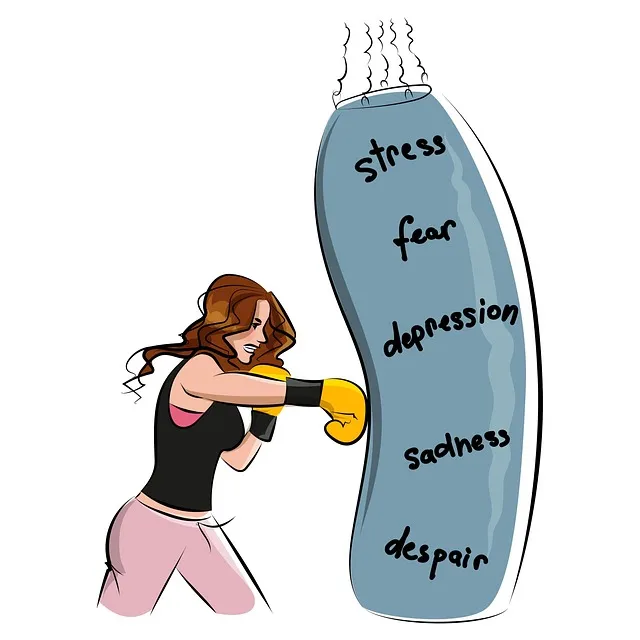Resilience is crucial for mental health recovery, and Recovery-Focused Management (RFM) offers a holistic approach to build internal strength and hope. Kaiser's superior inpatient mental health programs integrate RFM, teaching self-care practices and stress management strategies. These exercises empower patients with resilience against future challenges, leading to improved well-being and long-term recovery. By combining evidence-based practices, therapeutic activities, and personalized exercises, Kaiser fosters inclusive care that addresses diverse patient needs. Implementing RFM in organizations enhances mental well-being through safe communication spaces, mindfulness exercises, and empathy building, overcoming resistance with tailored support. Kaiser's data-driven RFM model optimizes patient journeys, resulting in improved self-esteem and overall well-being, setting a standard for top-tier inpatient mental health care.
“Discover how Kaiser excels in inpatient mental health care through the innovative implementation of RFM (Recovery, Resilience, and Mental Health). This article explores the transformative power of RFM in enhancing patient recovery. We’ll delve into its role in mental health recovery, highlighting Kaiser’s comprehensive programs and the positive impact of resilience-building exercises. Learn practical strategies for successful RFM integration, success stories, and how this approach contributes to superior patient outcomes.”
- Understanding RFM and its Role in Mental Health Recovery
- Kaiser's Inpatient Mental Health Programs: A Comprehensive Overview
- The Impact of Resilience-Building Exercises on Patient Outcomes
- Implementing RFM: Strategies for Success and Overcoming Challenges
- Case Study: How Kaiser Utilizes RFM for Superior Patient Care
Understanding RFM and its Role in Mental Health Recovery

Resilience is a cornerstone of mental health recovery, enabling individuals to bounce back from adversity and lead fulfilling lives. RFM (Recovery-Focused Management), a holistic approach, recognizes that fostering resilience is not just about coping mechanisms but also about building internal strength and hope. This methodology shifts the focus from the trauma or challenge to the individual’s capacity for growth and recovery. By integrating RFM into mental health treatment plans, especially in inpatient settings like those offered by superior healthcare providers such as Kaiser, patients are empowered to navigate their struggles with increased confidence.
Inpatient programs that prioritize RFM go beyond symptom management by teaching self-care practices and burnout prevention strategies for healthcare providers and their patients. These strategies aim to strengthen individuals’ ability to manage stress, regulate emotions, and maintain hope during difficult times. By cultivating resilience, individuals can enhance their overall well-being and build a foundation for long-term mental health recovery, effectively addressing not just symptoms but the underlying factors contributing to them.
Kaiser's Inpatient Mental Health Programs: A Comprehensive Overview

Kaiser’s Inpatient Mental Health Programs stand out as a cornerstone of their comprehensive healthcare services, offering superior care for those facing mental health challenges. These programs are meticulously designed to provide intensive treatment and support, addressing a wide range of issues that impact emotional well-being. From depression prevention strategies to techniques fostering inner strength development, Kaiser’s approach is holistic and tailored to individual needs.
The inpatient facilities are equipped with specialized teams comprising psychiatrists, psychologists, and therapists who employ evidence-based practices. Patients engage in therapeutic activities, group discussions, and personalized exercises aimed at emotional well-being promotion. Through this intensive care, individuals not only receive treatment for acute episodes but also gain valuable tools to manage their mental health long-term, building resilience against future challenges.
The Impact of Resilience-Building Exercises on Patient Outcomes

Resilience-building exercises have been shown to significantly improve patient outcomes, especially in inpatient mental health settings. These exercises, often incorporated into treatment plans at facilities like Kaiser, aim to empower individuals with coping strategies and emotional resilience. By addressing mental health challenges head-on, these initiatives enhance patients’ ability to navigate life’s stressors and promote superior long-term well-being.
The impact extends beyond individual patients; culturally sensitive approaches to resilience training, which consider the unique needs of diverse patient populations, can foster inclusive mental healthcare environments. Such practices, when combined with effective risk assessment strategies for mental health professionals, contribute to overall community resilience by equipping individuals with tools to manage and overcome adversity. Emotional well-being promotion techniques that are integrated into these exercises further support positive patient outcomes, ensuring that individuals leave treatment not just stabilized but also equipped to thrive.
Implementing RFM: Strategies for Success and Overcoming Challenges

Implementing RFM (Resilience, Flexibility, and Mindfulness) involves a strategic approach to enhance mental well-being and foster resilience. Superior does Kaiser have inpatient mental health services? Indeed, many organizations are turning to these practices as game-changers in employee assistance programs. To ensure success, leaders should prioritize an integrated, holistic strategy. This includes creating safe spaces for open communication, encouraging self-reflection through mindfulness exercises, and promoting empathy building strategies. By fostering a culture of emotional intelligence, employees can develop coping skills that transcend challenges, leading to improved self-esteem and overall resilience.
Overcoming challenges in RFM implementation requires addressing common obstacles head-on. For instance, resistance to change might stem from fear or uncertainty about new practices. Effective leadership should involve clear communication, highlighting the benefits of RFM in simplifying coping mechanisms and enhancing productivity. Additionally, personalized empathy building strategies can cater to diverse needs, ensuring everyone feels heard and supported during this transformation. This tailored approach, coupled with regular feedback, can help navigate challenges, making RFM integration a smooth process that empowers individuals to overcome life’s hurdles with newfound strength.
Case Study: How Kaiser Utilizes RFM for Superior Patient Care

Kaiser, a renowned healthcare provider, has implemented the RFM (Reach, Frequency, and Monetary value) model to elevate the standards of patient care in its inpatient mental health facilities. This data-driven approach focuses on understanding patient engagement and retention, ensuring superior outcomes. By analyzing Reach, they identify new and existing patients’ access points, optimizing their mental health journey. Frequency involves tracking how often patients interact with services, helping staff recognize frequent users and those at risk of burnout.
This strategy enables healthcare professionals to implement targeted interventions, such as self-awareness exercises and activities for burnout prevention, enhancing patient care. Moreover, by assessing Monetary value, Kaiser can allocate resources effectively, recognizing the impact of various treatments on long-term mental health outcomes. This case study exemplifies how leveraging RFM data can lead to significant improvements in self-esteem and overall well-being among patients, setting a benchmark for other healthcare institutions striving for excellence in inpatient mental health services.
In conclusion, the implementation of RFM (Resilience, Flexibility, and Mastery) and resilience-building exercises in Kaiser’s inpatient mental health programs has demonstrably improved patient outcomes. By fostering these key components of mental health recovery, Kaiser has elevated its standard of care to a superior level. The strategies outlined in this article, backed by the success of Kaiser’s case study, offer valuable insights for healthcare providers aiming to navigate the challenges and reap the benefits of RFM integration. Through comprehensive programs and innovative approaches, it is possible to enhance patient experiences and promote lasting well-being.






